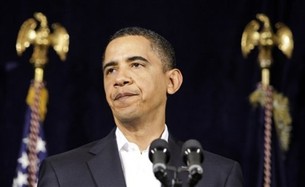Removing All Options from the Table

Ray Takeyh writes:
The modest demands of establishment figures such as Ali Akbar Hashemi Rafsanjani, including for the release of political prisoners and restoring popular trust (via measures such as respecting the rule of law and opening up the media), was dismissed by an arrogant regime confident of its power.Disillusioned elites and protesters who had taken to the streets could have been unified, or their resentment assuaged, by a pledge by Supreme Leader Ayatollah Ali Khamenei for the next election to be free and fair, for government to become more inclusive or for limits to be imposed on President Mahmoud Ahmadinejad's prerogatives. Today, such concessions would be seen as a sign of weakness and would embolden the opposition. The regime no longer has a political path out of its predicament.
I believe Takeyh is mostly right here. The problem however is that the Green Movement has lacked a political option from the get-go--hence the demonstrations and the unrest. Both sides have the option of violence, but that's a leap I don't think the Green Movement is prepared to take. As Takeyh notes, the regime has been mostly reserved and cautious in how it has handled the demonstrations, leaving it in a kind of uncertain limbo: it won't fully crackdown, nor will it capitulate.
He goes on to say:
The Obama administration should take a cue from Ronald Reagan and persistently challenge the legitimacy of the theocratic state and highlight its human rights abuses. The notion that harsh language militates against a nuclear accord is false. At this juncture, the only reason Tehran may be receptive to an agreement on the nuclear issue is to mitigate international pressures while it deals with its internal insurrection. Even if the regime accommodates international concerns about its nuclear program, the United States must stand firm in its support for human rights and economic pressure against the Revolutionary Guards and other organs of repression.
Let's keep in mind that Tehran, to date, has balked at even the most modest of uranium transfer arrangements, all the while withstanding demonstrations and internal unrest. These are men who cut their teeth during the war with Iraq, while at the same time fighting violent insurgents at home. None of this is new to them.
And "standing firm" requires a key commodity: leverage. Reagan had the leverage to simultaneously talk and talk tough because he had a stockpile of nuclear weapons and missiles to back up that talk. Were Obama to follow Takeyh's advice, and premise nuclear negotiations on human rights violations in Iran, then he'd essentially be removing all options but one from the proverbial table: attack.
Russia and China will not back a negotiating strategy intended to support the Green Movement. Thus, the United States will be left--once again--unilaterally lecturing a regime, and with only one remaining option to make good on that lecturing.
So are we prepared in 2010 to take that leap? Do we toss multilateral pressure on the scrapheap and ready for another war? This is the inevitable path if we lose sight of how fragile the international coalition is on Iran.
UPDATE: It's also, I would add, important to take note of the folks who are embracing Takeyh's suggestion. Some are what I would call the usual suspects, and they dragged us into one war based on false pretenses and then attempted to re-package it as a humanitarian endeavor. We know where they fall on the attack or talk question, but where then do their unlikely bedfellows reside?
(AP Photo)





